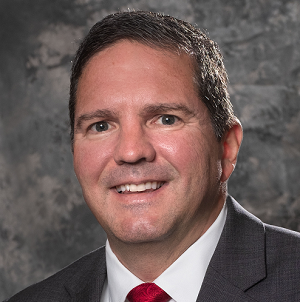United Federal Credit Union ($3.9B, St. Joseph, MI) wasn’t fooling around when it chose April 1 as its effective date for eliminating overdraft protection and non-sufficient fund fees. The Michigan-based cooperative which operates through 41 branches in six states also slashed its courtesy pay fee from $35 to $20 for its nearly 191, 000 members.
Meanwhile, Amplify Credit Union ($1.4B, Austin, TX) has eliminated all banking fees on all deposit products for all 58,014 of its individual and business members. The Texas cooperative began publicizing that that on Feb. 2 turning Groundhog Day into Fee Free Day and ending a cycle of financially vulnerable members, in particular, paying such fees over and over again.
Both cooperatives are part of a trend toward lowering or eliminating a lot of those so-called punitive forms of non-interest income, including by some of the major national banks earlier this year.
Members don’t hate fees because they cost too much. Members hate fees because they feel being charged for them is wrong.
Stacy Armijo, chief experience officer at Amplify, says her cooperative’s decision is the culmination of a journey into behavioral economics that began three years ago when Amplify commissioned research on consumers’ motivations around checking and savings accounts.
Members Are Averse To Fees. Really Averse.

“The research was clear that consumers don’t like fees, which was no surprise,” Armijo says. “The key insight was why. Members don’t hate fees because they cost too much. Members hate fees because they feel being charged for them is wrong.”
According to Armijo, “consumers feel taken advantage of when they encounter too many unexpected fees. In fact, they feel so strongly that it can motivate them to switch financial institutions.”
Armijo adds that Amplify’s membership more than at most institutions is particularly averse to fees, so the credit union turned that weakness into a strength. It can do that because it makes more servicing loans for other financial institutions than it does from its own balance sheet, and it has a strong mortgage origination business.
“Together, those functions deliver far stronger non-interest income than could be achieved through deposit fees,” Armijo says. “Best of all, it’s not earned off the backs of our members. We realized we had the potential to leverage our success in serving Texas homeowners and business owners to broaden the value we could deliver to Texans of every income and employment.”
Principle Over Principal
More than 1,000 miles away, United has a slightly different reason for making the same business decision to reduce fees.

Our motivation for eliminating and reducing fees associated with overdraft is simple it’s the right thing to do, says Terry O’Rourke, president and CEO of United FCU. We have the tools to help members avoid overdrawing their accounts, so United is taking a stance to support our members’ financial wellness and provide options that help them avoid fees.
United and Amplify are both aware that members who most need services tied to these fees are also the ones who find the fees most punitive.
“Those who rely on courtesy pay are often the ones least able to afford it,” O’Rourke says. “We’re taking a stance to support our members’ financial wellness and provide options that help them avoid fees.”
Armijo says the same realization emerged from Amplify’s research.
“As we looked deeper into overdraft fees specifically, we were disturbed to find a small portion of our membership was driving most of that income,” she says. Many of those members were spending hundreds, or even thousands, of dollars per year in overdraft fees. As a credit union, we couldn’t feel good about that because it doesn’t live up to our mission of improving the financial lives of our members. We knew we needed to change.
Still Good Business
Neither cooperative expects the income lost from those fees to damage the bottom line. Amplify’s research found members are more interested in avoiding fees than getting a higher savings rate, which makes sense given how low rates are and how easily fees can offset such income. The credit union’s own research found members paid an average of $33 in fees on deposit accounts per year while the vast majority of members earned less than $10 in interest.

Amplify put up several billboards around its Austin-based service area to spread the message about eliminating all of its service fees.

Amplify put up several billboards around its Austin-based service area to spread the message about eliminating all of its service fees.

Amplify put up several billboards around its Austin-based service area to spread the message about eliminating all of its service fees.

Amplify put up several billboards around its Austin-based service area to spread the message about eliminating all of its service fees.
That tradeoff just doesn’t make sense, Armijo says. We believe eliminating fees will help us keep and grow core deposits.
The credit union expects to hang on to more core deposits and accounts and generate more debit interchange income as a result its new fee strategy. Just as important, it gets the credit union out of what Armijo calls the rat race that is chasing deposits with rate. According to the chief experience officer, FIs know high deposit rates attract hot money, which leaves institutions just as easily as it arrives when account holders can make a few more basis points elsewhere.
With that competitive pressure of keeping up with the Deposit Rate Joneses,’ it’s nearly impossible to meaningfully improve net interest margin, Armijo says.
All around, Amplify is confident in its business decision to eliminate fees.
While we’re excited about the member giveback and positive community impact of eliminating fees, this journey began with a business objective, Armijo says. More core deposits = improved net interest margin = more net income.
Do It Now With Eyes Wide Open
O’Rourke at United also says the credit union is confident in its decision to adjust its fees; however, the CEO advises leaders to clearly understand what the impact of losing that fee income will be on their institutions’ balance sheets before committing to lowering or eliminating them.

United Federal Credit Union posted on Facebook as part of its marketing around fee waivers and eliminations.
Consider what’s best for the membership as well as what’s best for the sustainability of the organization, O’Rourke says. An important factor should be the ability to maintain a financially responsible cooperative that can be around for a long time to serve members and make positive contributions to the community.
Credit unions that can’t afford such sharp reductions now should not consider themselves without options, he adds.
Even if a complete overhaul of overdraft fees isn’t possible for your credit union yet, look for other creative ways to reduce fees, educate members on the options available to them, and remove unintentional hardships some programs can create for members, he says.